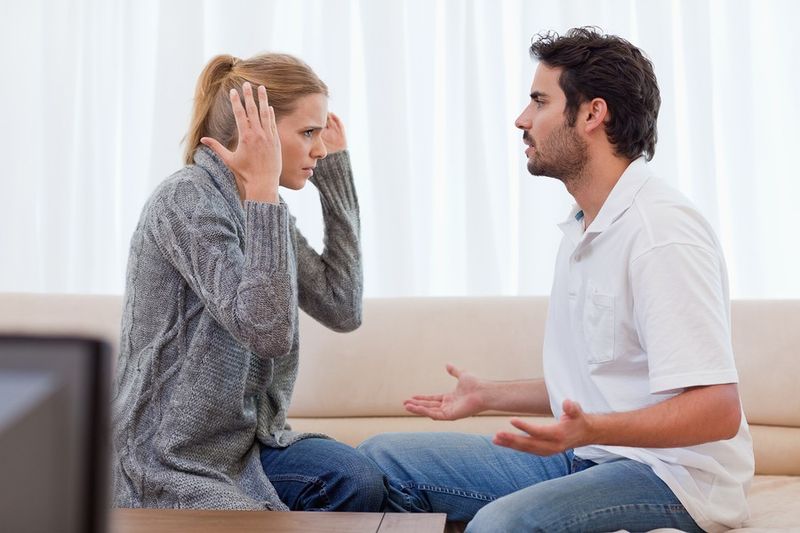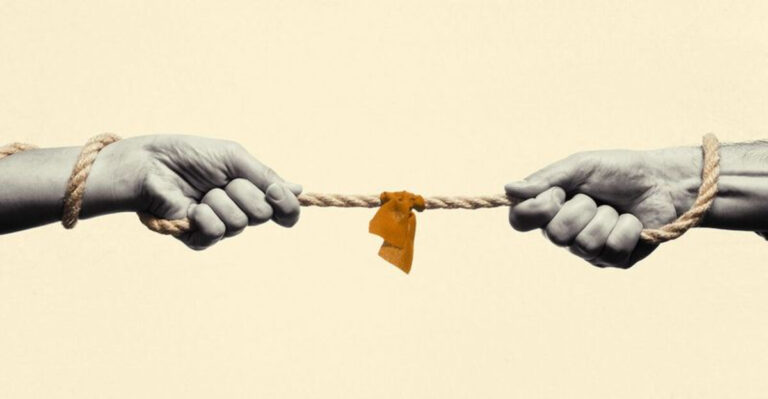17 Signs Your Partner Is Unhappy
In relationships, subtle changes often whisper what words might never say out loud. When a partner is unhappy, these changes can manifest in ways that are easy to overlook but significant in their impact.
Understanding these signs can help foster communication and empathy, allowing couples to address underlying issues before they evolve into bigger challenges.
1. Conversations feel shorter and less meaningful

In relationships, conversation serves as the emotional glue. When it starts feeling shorter and less meaningful, it often indicates underlying discontent. Your partner may seem distracted, replying with one-word answers or appearing disinterested in the dialogue. This change can create a sense of distance, making everyday interactions feel hollow.
This shift might occur gradually. Initially, it might seem like an off day, but over time, these brief exchanges become the norm. Relationships thrive on meaningful conversations, and the absence thereof might point to emotional unease. Observing the quality of your chats can provide insight into your partner’s current emotional landscape.
2. They’re not as emotionally available

Emotional availability is key to a thriving relationship. When your partner isn’t as emotionally available, you may notice a reluctance to share feelings or a tendency to withdraw during emotional moments. This can make you feel like they’re distant, not just physically, but mentally and emotionally too.
This absence isn’t always intentional. Sometimes, personal stressors or internal conflicts create barriers that weren’t there before. It might feel as though you’re speaking, but not reaching them. This distance can lead to feelings of isolation within the relationship.
Addressing this requires patience and understanding. Encourage open talks and offer support, reminding them that you’re there when they’re ready to share.
3. Plans stop feeling exciting to them

When plans lose their luster, it often signals a deeper issue. Notice if your partner seems uninterested in activities they once enjoyed. What used to be a thrilling night out or a spontaneous adventure now feels like a chore to them.
It’s not unusual for interests to evolve, but a consistent lack of enthusiasm can indicate dissatisfaction. This apathy can stem from various sources, such as stress, fatigue, or deeper relationship concerns. It’s important to have open discussions about these changes.
Rekindling excitement can involve exploring new activities together or finding ways to reconnect over shared interests. Addressing the root causes can help rejuvenate the joy in planning together.
4. They become more distracted or distant

Distraction and distance often go hand in hand with discontent. When your partner becomes frequently lost in thought or absorbed in tasks, it can feel as though they’re not entirely present. This distance might create a sense of loneliness, even when you’re together.
Such behavior could be a defense mechanism against underlying stress or a sign of unhappiness. It’s crucial to approach this with empathy and curiosity rather than accusation. Recognizing these moments as opportunities for connection rather than contention can be pivotal.
Gently expressing your observations and concerns can open the door to understanding their world and the reasons behind their distraction.
5. They avoid physical affection

Physical affection is a cornerstone of many relationships. When a partner starts avoiding it, it can be a poignant sign of underlying issues. This reluctance might manifest as fewer hugs, kisses, or touches that once felt natural and comforting.
Such a change can feel stark and unsettling, fostering insecurity or confusion about the relationship’s status. It’s not always about a loss of love; sometimes, it reflects personal turmoil or stress. Understanding this can prevent misinterpretations.
Opening a dialogue about the shift in affection can be enlightening. It allows both partners to express their needs and emotions, fostering a path to reconnect physically and emotionally.
6. You sense irritation where there used to be ease

When irritation replaces ease, it often signals unrest. If simple interactions trigger frustration in your partner, this could reflect deeper dissatisfaction. Minor annoyances might escalate, leaving you feeling like you’re walking on eggshells.
These reactions might not always be rooted in the present moment; they can be expressions of cumulative stress or unresolved issues. Recognizing these patterns can help in contextualizing their behavior without taking it personally.
It can be helpful to gently address this tension, expressing understanding and a willingness to explore what might be causing such reactions. This approach can lead to more meaningful conversations about underlying concerns.
7. They pull away during arguments instead of resolving them

Arguments can be healthy, but when your partner consistently pulls away instead of seeking resolution, it can signal unhappiness. This avoidance might manifest as walking away, silent treatment, or refusal to engage in finding solutions.
Such behavior can leave conflicts unresolved, causing them to fester into bigger issues. It might be a protective mechanism, avoiding confrontation to escape emotional distress. Understanding this can help in addressing it constructively.
Encourage a safe space for open dialogue, emphasizing the importance of resolving disputes for the relationship’s health. Developing constructive conflict resolution strategies can foster a more supportive and understanding environment.
8. Jokes or sarcasm feel sharper than before

Humor can be a bonding tool in relationships, but when jokes or sarcasm take on a sharper edge, it might indicate underlying tension. If your partner’s humor feels more biting than playful, it can suggest unspoken frustrations.
This shift might not always be intentional. Sometimes, sarcasm masks deeper emotions that are challenging to articulate directly. Recognizing this subtle change can help in understanding your partner’s emotional state.
Addressing this requires careful navigation. Engaging in a conversation about how certain remarks make you feel can lead to more understanding and allow your partner to express what they might be struggling with.
9. They stop asking about your day or feelings

When a partner stops inquiring about your day or feelings, it might reflect a growing emotional gap. This change can feel like a disregard for your daily experiences and emotions, highlighting a shift in connection.
Previously a source of comfort and validation, such inquiries play a crucial role in maintaining emotional intimacy. Their absence can suggest that your partner is preoccupied or emotionally depleted, struggling to extend beyond their own concerns.
Reintroducing this element into your relationship requires patience. Expressing your needs and encouraging mutual sharing can help bridge this gap, restoring a sense of partnership and emotional support.
10. Shared routines fall away

Shared routines often symbolize connection and commitment. When these routines start to dissolve, it might indicate underlying unhappiness. Whether it’s a regular evening walk or a favorite weekend activity, its absence can create a sense of loss.
These changes might result from a shift in priorities or personal challenges. Recognizing the value of these shared moments is crucial for maintaining relationship bonds. Their absence can lead to feelings of drifting apart.
Reestablishing or creating new routines can help renew connection. Discussing these changes openly can lead to understanding each other’s needs and finding ways to integrate shared moments into your daily lives.
11. There’s less eye contact and fewer smiles

Eye contact and smiles are subtle yet powerful connectors. When these diminish, it can signify emotional distance. You might notice your partner avoids eye contact or smiles less frequently, creating a sense of detachment.
Such changes might not be immediately obvious but gradually become noticeable. The lack of these small, yet significant gestures can lead to a feeling of disconnect, impacting the relationship’s warmth.
Acknowledging and discussing these shifts can help in understanding their origin. Encouraging moments of genuine connection can gradually rebuild the emotional bridge these gestures once provided, fostering a renewed sense of closeness.
12. They avoid talking about the future

Future planning often signifies commitment and shared vision. When your partner avoids it, it might reflect uncertainty or dissatisfaction about the relationship’s direction. This avoidance can manifest as reluctance to discuss vacations, life goals, or important milestones.
Such hesitancy might stem from personal doubts or concerns about the relationship’s dynamics. It’s essential to approach this with empathy, providing space for them to express their feelings without pressure.
Creating a safe environment for open dialogue about future aspirations can reveal underlying issues. Understanding each other’s perspectives and concerns can help align your visions and strengthen your partnership.
13. They spend more time away—mentally or physically

Spending more time away, whether mentally or physically, can be a strong indicator of unhappiness. You might notice your partner frequently engages in solo activities or seems preoccupied even when present.
This distancing might be a coping mechanism for stress or dissatisfaction, creating a barrier in the relationship. It can lead to feelings of neglect or isolation for the other partner, affecting emotional intimacy.
Addressing this involves understanding their need for space while expressing your concerns. Encouraging shared activities and open communication can help bridge the gap, promoting a more connected and supportive relationship.
14. You stop being their go-to person

Being a partner’s go-to person for support and sharing is foundational. When you’re no longer the first person they turn to, it can suggest a shift in emotional reliance. This change might manifest as sharing news or seeking advice from others first.
Such a shift may stem from unmet needs or perceived misunderstandings within the relationship. It can create feelings of exclusion or inadequacy, affecting your bond.
To address this, it’s important to foster an open environment for communication. Reaffirming your role as a supportive partner can encourage them to re-establish that initial connection, strengthening your emotional rapport.
15. Your presence no longer seems to bring comfort

When your presence, once a source of comfort, no longer provides that solace, it can be concerning. This might be evident if your partner appears restless or anxious even when you’re near, indicating deeper emotional turmoil.
Such a change can stem from unresolved issues or stress. It might not be a reflection of your relationship but rather personal challenges your partner is facing. Recognizing this can prevent unnecessary blame or misunderstanding.
Discussing how your presence affects them and what might be contributing to their discomfort can open avenues for support. Together, you can explore ways to reintroduce comfort and reassurance into your shared space.
16. They shut down instead of opening up

When a partner shuts down instead of opening up, it signals a significant emotional barrier. This might occur during discussions about feelings or issues, where silence becomes their response instead of dialogue.
Such behavior may arise from fear of conflict, feeling overwhelmed, or not knowing how to communicate their emotions. It can create a wall that blocks intimacy and understanding.
Encouraging a gentle, non-judgmental space for sharing can help break down this barrier. Letting them know it’s safe to express themselves can gradually rebuild trust and open lines of communication, vital for a healthy relationship.
17. You feel like something’s missing, even when they’re near

The feeling that something’s missing, even in your partner’s presence, can be disheartening. This sense of absence can stem from a lack of emotional connection, where physical proximity doesn’t equate to closeness.
Such feelings often point to underlying emotional gaps or unmet needs within the relationship. It’s an opportunity to reflect on what might have shifted, whether it’s communication, affection, or shared experiences.
Exploring these feelings together can lead to a deeper understanding of each other’s needs. By addressing these emotional voids, you can work towards re-establishing the connection that once made your relationship feel whole.






